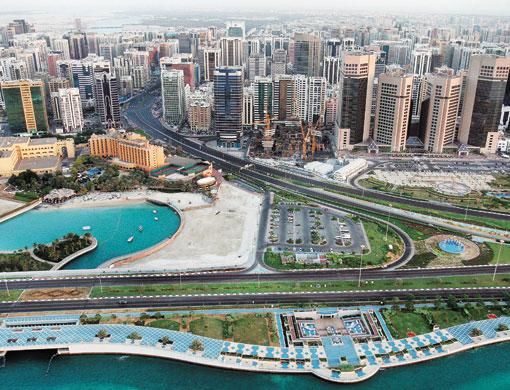Abu Dhabi: The Abu Dhabi government has announced a long-term plan that would turn the emirate into a knowledge-based economy and reduce its dependence on the oil sector as the main source of economic activity, the Emirates News Agency (WAM) reported on Wednesday.
The plan is in line with the vision of President His Highness Shaikh Khalifa Bin Zayed Al Nahyan.
The document, titled Abu Dhabi Economic Vision 2030, contains a comprehensive plan to diversify the emirate's economy and achieve a noticeable growth in the contribution of non-oil sector to the gross domestic product (GDP) of the emirate by 2030.
Abu Baker A. Al Amoudi, director of Statistical Administration in the Department of Planning and Economy, Abu Dhabi, declined to comment on the plan. However, economists agreed that the plan is a reasonable one and were hopeful it would be able to achieve its desired objectives.
"A knowledge-based economy will diversify the source of income in the economy. Oil will be there, but its share in the overall GDP will be reduced over time, while the contribution of other sectors will be increasing," said Mohammad Amerah, an Abu Dhabi-based economist.
He said in the long term, the weightage of sectors such as manufacturing, agriculture, construction, real estate, tourism, information technology, financial sector and financial services will increase in the emirate's GDP.
"The economy will flourish through diversification," said Amerah.
"I think, it's a good move by the Abu Dhabi government. There are a lot of opportunities in the UAE, and in Abu Dhabi in particular, to diversify the economy through the development of the non-oil sector," said Mohammad Al Asoomi, a Dubai-based economist.
The 142-page plan reveals two priorities of the emirate's economic development policy, which are building a sustainable economy and striking a balance between social and regional development, so the benefits of economic development will be extended to all residents of the emirate.
The GDP of Abu Dhabi, one of the richest states in the Gulf, sitting on 98 billion barrels of oil that will serve the emirate 100 years if pumped at the current rate, is projected to jump to $179 billion in 2010 and quadruple to $315 billion by 2025, according to a the Department of Planning and Economy Abu Dhabi.
Average per capita GDP rose to $71,200, in 2007, the second highest rate in the world, much higher than of $53,000 in Norway, $49,700 in Singapore, $45,800 in the US, $35,100 in UK, $34,200 in Germany and $33,200 in France.
Nasser Al Suwaidi, Chairman of the Abu Dhabi Planning and Economy Department, said the plan is a clear road map for the ongoing development of the emirate's economy.
Mohammad Al Bawardi, Secretary General of the Abu Dhabi Executive Council said that publishing the plan is another achievement in achieving transparency and credibility.jump to $179 billion in 2010 and quadruple to $315 billion by 2025.













